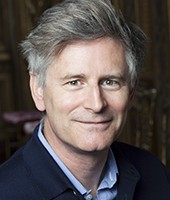Michael Häusser
A Fellow of the Royal Society, as well as a Principal Research Fellow of the Wellcome Trust and member of Academia Europaea, Prof. Häusser's main research interest is the cellular basis of neural computation in the brain, with a special focus on the role of dendrites. His group has helped pioneer optical and electrophysiological methods for probing the function of neural circuits in the intact brain. After receiving his PhD from Oxford University, Prof. Häusser joined Nobel Laureate Bert Sakmann at the Max-Planck-Institute for Medical Research in Heidelberg, Germany, and Philippe Ascher at the Ecole Normale Superieure in Paris, France. He established his own laboratory at UCL in 1997 and became Professor of Neuroscience in 2001. With his ERC Advanced Grant, Prof. Häusser is investigating how dendrites, the receiving elements of neurons, can act as computational devices, and how they are engaged within neural circuits during behaviour. To address this fundamental question, he and his team will exploit a range of innovative imaging, recording, and optogenetic technologies that will allow them to both record and manipulate dendrites and neural circuits during behaviour. This approach will provide invaluable insights into how single neurons act as computing devices, and how the computations that drive behaviour are implemented in single cells and neural circuits.
Research interests
Dendrites; Neural circuits; Neuronal computation
A Tale of Two Cortices: The Dialogue between Cerebellar and Cerebral Cortex
The cerebellar cortex and the cerebral cortex work in concert to regulate a wide repertoire of behaviours, from sensorimotor tasks to more complex cognitive operations. Although much information exists about their individual contributions, we still lack a global framework for understanding how the reciprocal influences between these brain areas contribute to brain function. Understanding this process is crucial for understanding not just how the brain plans and executes movements, but also for complex decisionmaking processes, with implications for psychology, philosophy, cognitive sciences and computer science. This project will address this question by synthesizing experimental observations and theoretical studies to provide a quantitative understanding of the link between cerebellar and cortical function in a range of behaviours. This work will be placed into a wider framework by interaction with cortical and cerebellar experts in the Paris community. It will also draw on the expertise of the International Brain Laboratory, a new initiative which aims to create a virtual laboratory uniting experimental and theoretical groups across the world and lead to a transformation of the scientific culture in neuroscience. This project therefore represents a fresh approach to probing the relationship between two key brain circuits, which can offer profound insights into how brain-wide interactions are integrated to drive behaviour in both healthy and diseased brains.
|
The Paris IAS hosts the 2nd edition of the International Brain Laboratory Meeting |
|
|
|
|

